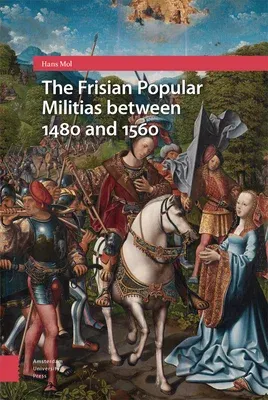Hans Mol
(Author)The Frisian Popular Militias Between 1480 and 1560Hardcover, 26 September 2022

Temporarily out of stock
Free Delivery
Cash on Delivery
15 Days
Free Returns
Secure Checkout

Print Length
242 pages
Language
English
Publisher
Amsterdam University Press
Date Published
26 Sep 2022
ISBN-10
9463723676
ISBN-13
9789463723671
Description
Product Details
Author:
Book Format:
Hardcover
Country of Origin:
US
Date Published:
26 September 2022
Genre:
16th Century
ISBN-10:
9463723676
ISBN-13:
9789463723671
Language:
English
Location:
Amsterdam
Pages:
242
Publisher: